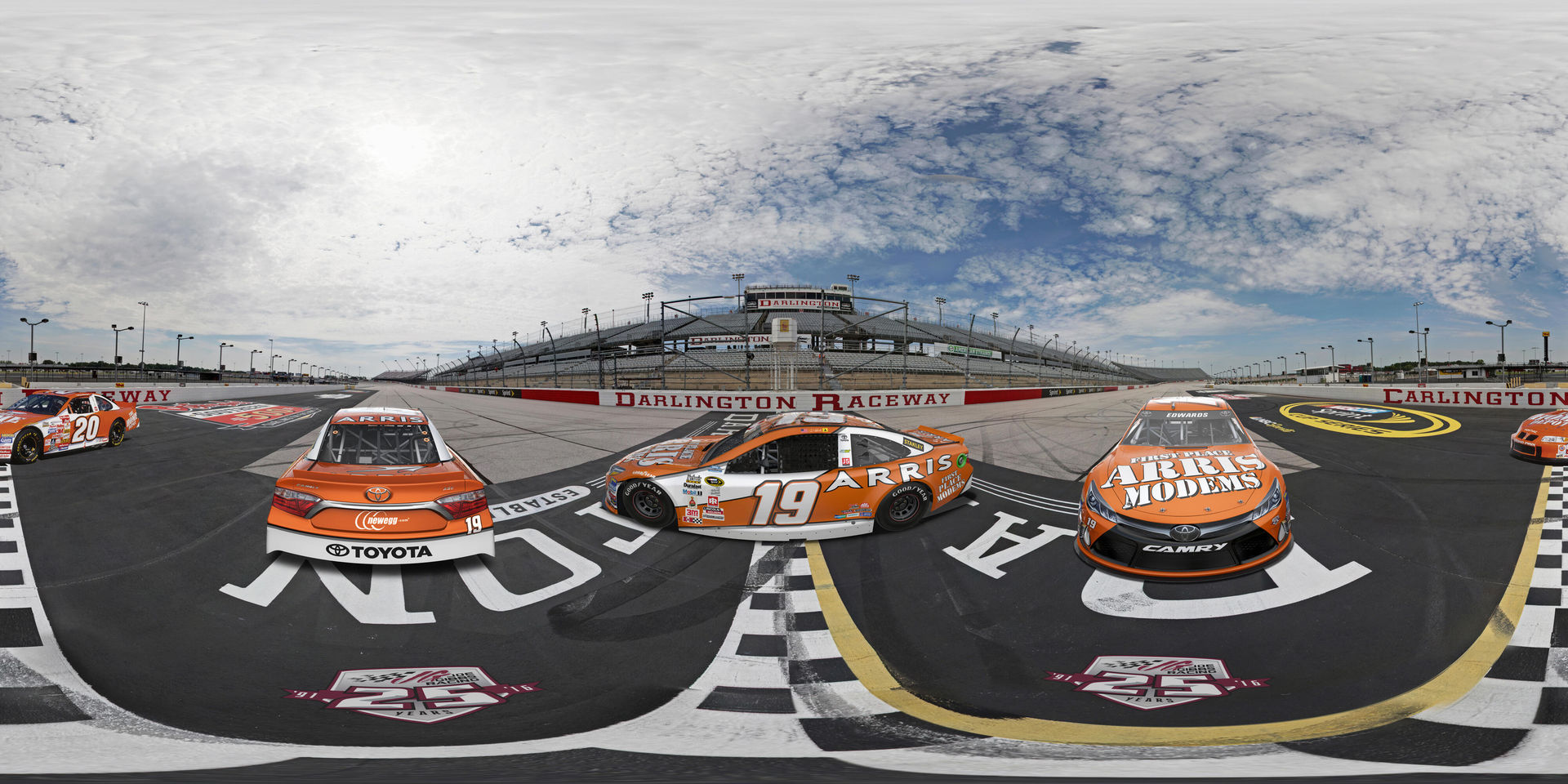
Improving Road Safety with Virtual Reality Experiences
ClassVR offers Virtual Reality Road Saftey Education that help Emergency Services save lives.

Making Journeys Safer
Through the power of ClassVR, the world of road safety and motorcycle safety has gained a new tool to educate drivers of all ages about the dangers of the road.
In partnership with Emergency Services
ClassVR is working with police forces, fire services, authorities and districts worldwide to change driver attitudes and improve road safety.
Our immersive driving passenger VR lessons educate users to understand the following
Hard-hitting impacts of road accidents
Using ClassVR, drivers can experience realistic and hard-hitting experiences and road accidents, all from a safe environment for drivers.
Irresponsible Road Behaviour
Using virtual reality, drivers can experience the consequences of their irresponsible road behaviour in a striking way.
Safe Driving Practices
By showcasing road traffic collisions caused by irresponsible road behaviour, users can experience why safe driving practice is important.
VR Use Cases
The Northern Ireland Fire and Rescue Service
Alongside their own VR car crash programme that puts young people in the passenger seat of a vehicle that is involved in a road traffic collision, to improve their driving habits and increase road safety among people under the age of 24.
Driving lessons and Speed awareness courses
Used at the start of a driving lesson, drivers can be immersed into real-driving environments before beginning the intimidating task of learning to drive.
The Northern Ireland Fire and Rescue Service
ClassVR to demonstrate the full impact and after-math of a crash, aimed at young drivers. This experience was designed to teach students about the consequences of irresponsible road behaviour and ultimately reduce road collisions.
The Ideal VR Solution for Emergency Services Training & Road Safety Education
Our global sales representatives are here to help you with your needs. Fill out a contact form, email or call a member of our team today to begin your ClassVR journey.

What’s Included in the ClassVR solution
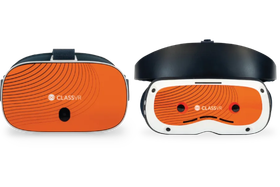
Headsets
Ergonomically designed VR & AR headsets built specifically for education.

Immersive Content
Access thousands of curriculum-aligned
resources in our Eduverse libraries.
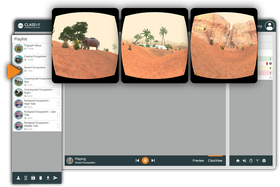
Classroom Management
The ClassVR Portal is fully integrated with every ClassVR headset. Giving educators real-time visibility and control.
.png)
Training & Support
Technical and educational teams take teachers from set-up through training and beyond.
.png?updatedAt=1758536654890)
Safe Storage & Charging
Rugged, lockable cases with built-in charging keeps devices safe and lesson-ready.
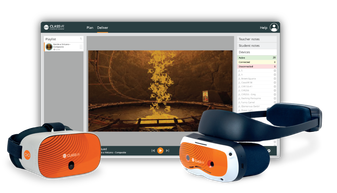
Device Management
Simplify school IT with ClassVR, centralised device management, remote monitoring and analytics in one platform.
AI-Powered Content Creation Available with ClassVR
Harness the power of VR to open up interactive, immersive worlds that deepen engagement and understanding. With ready-to-use tools, you can quickly create experiences that are impactful and clear to understand, increasing engagement and learning.
Generate custom 360° scenes for your lessons in seconds
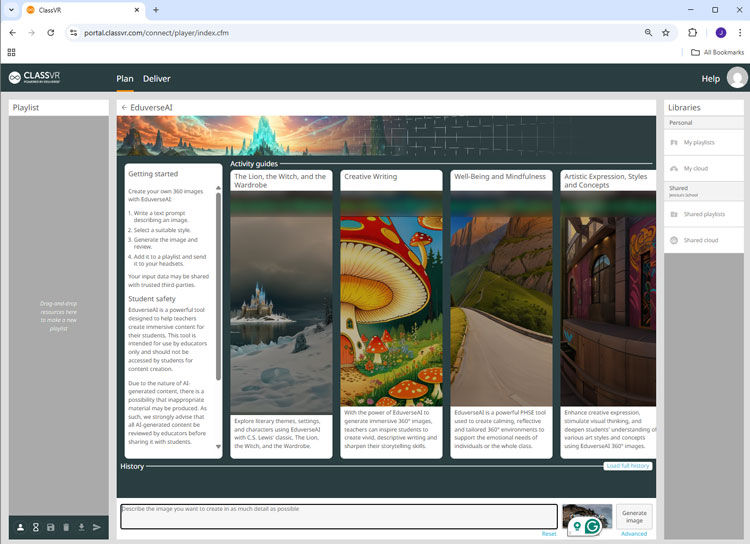
Write a Prompt
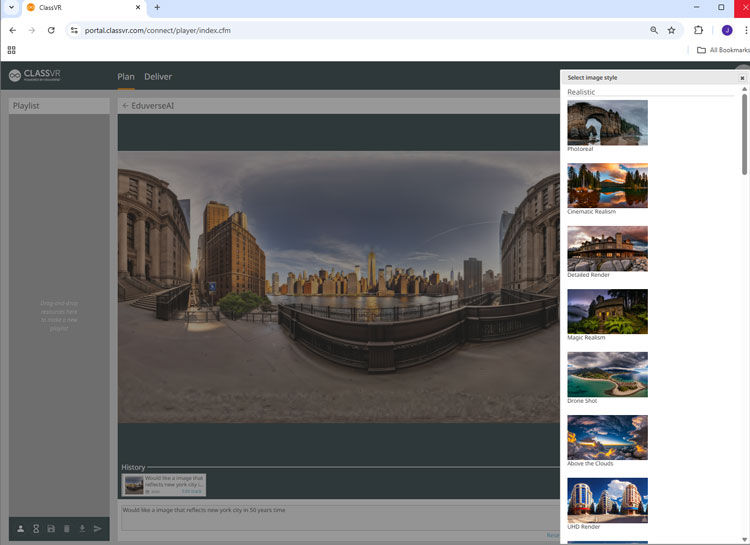
Choose a Style
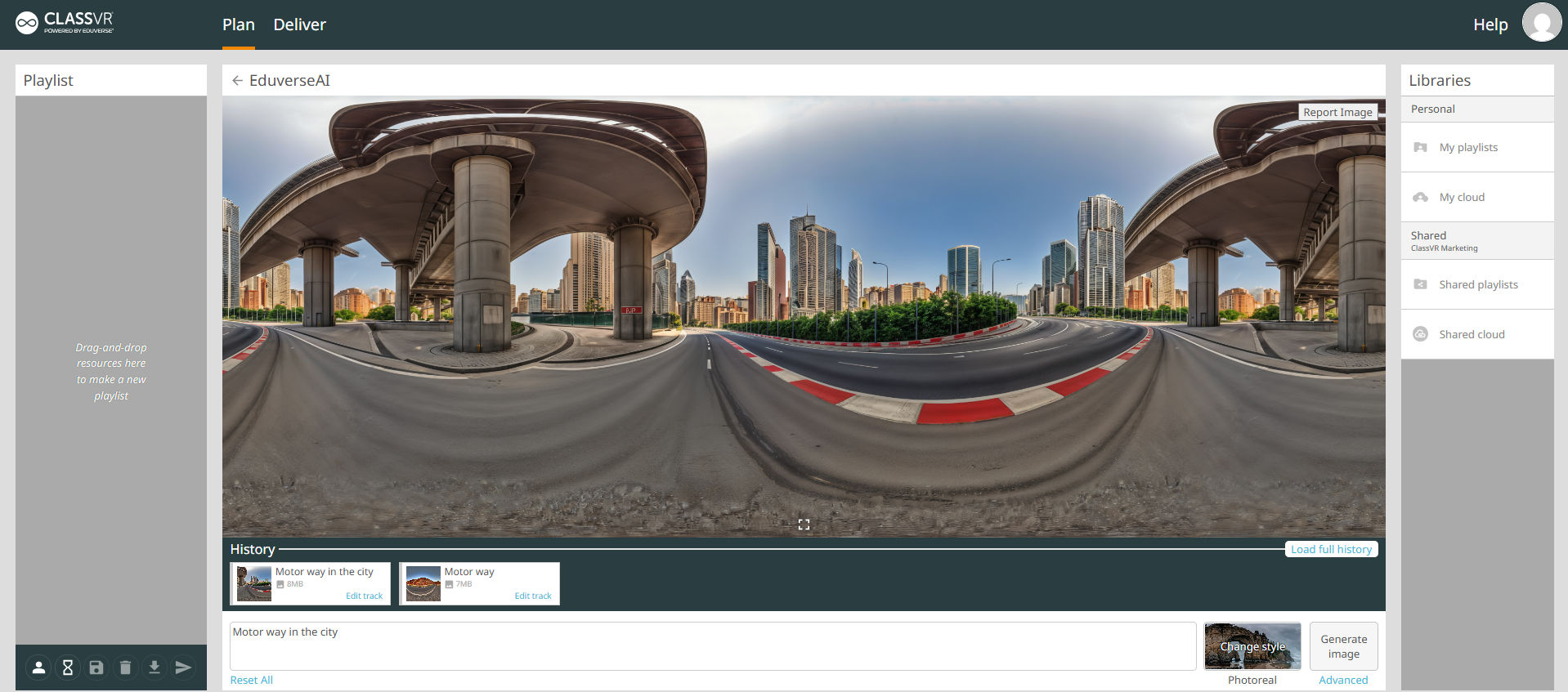
Generate Image

Review & Refine
Frequently Asked Questions
What is VR for road safety?
Virtual Reality (VR) for road safety uses immersive simulations to train drivers, cyclists, and pedestrians in a safe, controlled environment. It helps people experience real-life road scenarios without the risks of actual accidents.
Who can benefit from VR road safety training?
New drivers – to practice handling risky situations.
Professional drivers – for refresher courses and advanced training.
Children and students – to learn safe pedestrian and cycling habits.
Companies – to train employees who drive for work.
How is VR better than traditional road safety training?
Offers realistic, hands-on experiences.
Provides risk-free practice in dangerous scenarios.
Enables instant feedback and performance tracking.
Increases engagement and retention compared to lectures or videos.
What kind of scenarios can VR simulate?
Pedestrian crossings and blind spots.
Distracted or drunk driving.
Night driving and poor weather conditions.
Highway merging and overtaking.
Emergency braking or obstacle avoidance.